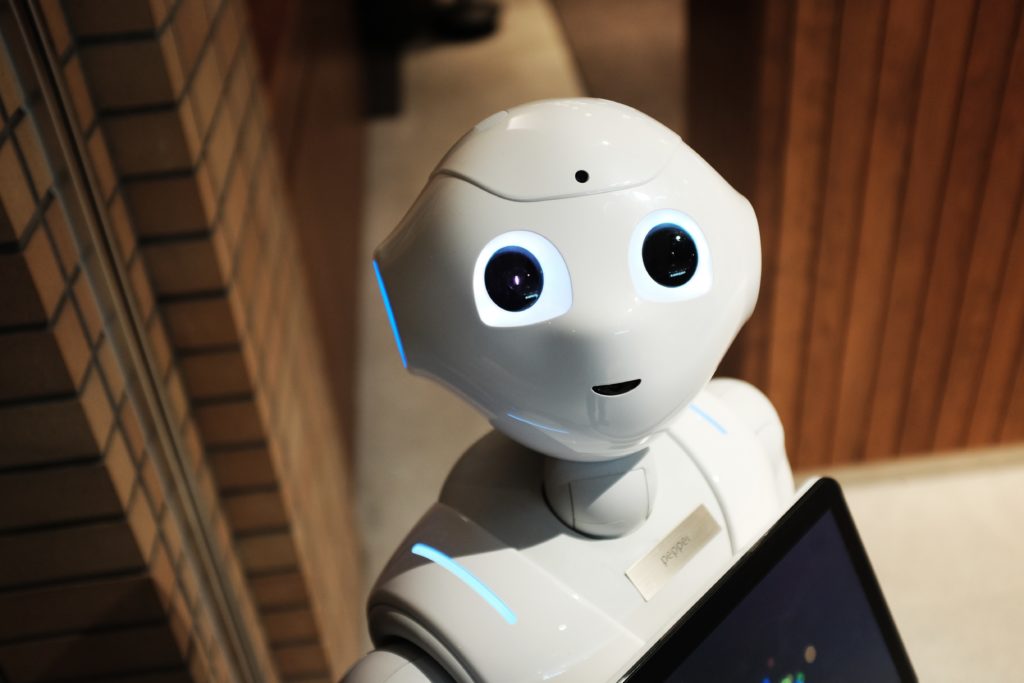
Artificial Intelligence
Technology is constantly evolving. Cameras are everywhere. Whether they are security cameras installed in and around buildings, or people with their cell phones capturing anything and everything, cameras are quite literally… everywhere.
Its the big brother effect. We’re being watched, or are almost starting to program ourselves to believe that there are eyes on us at all times.
Good or bad, it seems to be a way of the future.
In China however, cameras aren’t just watching – they’re recognizing and learning.
At a high school in China, forgetting your student ID has become a non-issue.
Facial recognition cameras are replacing the need for ID’s and have been an easy fast pass for students to take out books, pick up their lunch, use vending machines and anything else a student card may be used for.
Great right?
Well… the cameras then got moved into some of the classrooms.
The cameras were able to conduct attendance. They were also programmed to recognize different facial expressions.
They could distinguish between happy, sad, angry, fear, disgust, surprise, and neutral.
Next, they recorded the data. They kept it and used it to track any issues that may potentially arise.
They basically had a point system and once a student reached a predetermined level, a notification would be sent out to teachers or administrators.
At this point this could trigger a human reaction. Someone could step in and engage with the student to deal with them if they were disengaged, tired, sad, or angry.
Potentially negative situations could be handled instead of ignored until a potentially bad event evolved.
Now while this may have positive implications and could be a means to avoiding higher risk situations by engaging with students that appear as loners or troublesome, students caught on.
While they were ok with using facial recognition as a means to replace an ID card, constantly being watched was something they weren’t to fond of.
In China, students have a typically longer day then the students of North America may have. They have their regularly scheduled classes plus extra curricular activities and any tutoring.
The odds of this longer day causing students to constantly appear tired was pretty great. So even good students who were active and getting good grades, due to a tired expression, they could be raising red flags unnecessarily.
Furthermore, if a student went to school in a particularly bad mood, they were still smart enough to pull their frown into a smile to ‘trick’ the camera into thinking everything was ok.
They knew if they faced the front of the class, even if they weren’t particularly engaged, this may be enough to keep them under the radar.
They were finding ways to beat the system.
The cameras only lasted a short time before parents and human rights activists raised enough alarms for them to be pulled for further testing.
Not to say they won’t be back at some point, but for the time being, faking happy doesn’t have to be on anyones agenda.
While airports are starting to implement more facial recognition cameras, they’ve yet to take the data recorded to these extremes.
While the mere thought of monitoring every persons face constantly, all over the world, and recording the data to make comparisons so that alarms can be raised anytime someone appears to look somewhat hostile is a bit of a long shot. That isn’t to say that one day Big Brother won’t be watching over all of us at all times.
The question of whether this would one day be a viable security mechanism throughout schools, businesses, and any potential area where a threat may be, may perhaps go unanswered for a while.
It does definitely open up the table for discussion on how much is too much, and where the invasion of privacy starts and ends when it comes down to security.
If you could send your child to school knowing that if they all of a sudden became disengaged, or seemed more angry or hostile, would this not be something you would want to be warned of? To protect them from others or even themselves? To even aid in their learning process. Ensure that they’re learning and growing and if they are having trouble, being able to establish it early on to get them any necessary help as soon as possible?
Or is it all too much?
http://www.latimes.com/world/la-fg-china-face-surveillance-2018-story.html
Guest Blogger Rayna Davies
Rayna Davies is a graduate and practitioner of Business Management. She has developed an expertise in blogging, covering subjects like travel, world events and security. Having grown up with a father who has developed an expertise in Physical Security and Executive Protection in the RCMP and two major corporations, she has personally observed and  experienced many security details. These experiences have included personally meeting HM Queen Elizabeth, Prime Minister Jean Chretien and many celebrities. She presently assists Sentinel Security in Executive Protection workshops and guest blogging and also assists Gloprosec Preventative Services in Intelligence gathering and Business Administration. Her passions include World travel, having visited every continent. She currently is on maternity leave and providing daily close protection for a baby and a toddler and spending time with her husband who is a Police Officer.
experienced many security details. These experiences have included personally meeting HM Queen Elizabeth, Prime Minister Jean Chretien and many celebrities. She presently assists Sentinel Security in Executive Protection workshops and guest blogging and also assists Gloprosec Preventative Services in Intelligence gathering and Business Administration. Her passions include World travel, having visited every continent. She currently is on maternity leave and providing daily close protection for a baby and a toddler and spending time with her husband who is a Police Officer.



